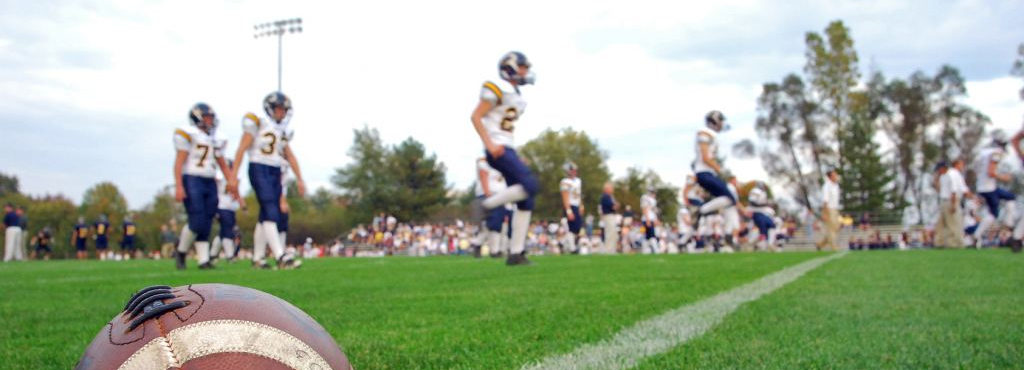Have you ever dreamed of going to a certain college or university based on how much you love its sports team? If so, you’re definitely not alone. Research shows a connection between the success of a college football or basketball team and a spike in admissions to the school. This is known as the Flutie Effect.
What Is the Flutie Effect?
The Flutie Effect is named after former Boston College and pro football player Doug Flutie. His performance while playing football for Boston College increased the popularity of the school and boosted the number of applications by 30%. Other schools have since experienced this phenomenon.
The History and Origin of the Flutie Effect
During a game between Boston College and the University of Miami in 1984, Flutie threw a 48-yard Hail Mary pass in the final seconds that was caught for the game-winning touchdown. This was the pivotal moment that put Flutie and Boston College in the spotlight, purportedly leading to the number of applications increasing.
How the Flutie Effect Works
In general, a winning team raises the profile of the school — especially in a national championship or an upset victory — attracting more prospective students. Essentially, it’s brand advertising. Additionally, students may find it appealing to be part of a school with successful athletic teams, especially since American culture is so sports-centric.
The Flutie Effect and How Athletic Success Boosts College Applications
Athletic programs are the primary form of mass media advertising for most US academic institutions, according to marketing professor Doug J. Chung. Therefore, a national championship win or an upset generates a lot of publicity for the school, and publicity means more public interest, leading to an increase in prospective students and college applications evaluations.
Chung published his findings on the effect of collegiate athletics on admissions at Harvard Business School in 2013. His findings show that applications increase by 17.7% when a mediocre team rises to greatness. Schools that want to attain similar results without a winning team must either lower tuition by 3.8% or recruit higher-quality faculty.
The Flutie Effect has impacted several schools. For example, Georgetown University saw a 45% increase in applications in the mid-1980’s during a surge of basketball success, most notably after Patrick Ewing led the Hoyas to a national title. After the Northwestern University football team won the Big Ten Championship, applications increased by 21%. Other schools that experienced a rise in applications after athletic success — typically due to the football or basketball team — include Butler University, Gonzaga, Texas A&M, UMBC, Lehigh, and Virginia Commonwealth University.
Athletic Scholarships and Admissions
While schools should primarily focus on academic quality, recruiting talented athletes to boost the school’s team and overall reputation is also important. However, the decision to admit these athletes is ultimately up to the admissions committee, not the team’s coaches. Not every talented student-athlete will inspire the Flutie Effect, but research shows that a school’s success in sports will often boost alumni donations and the quality of the applicant pool.
It’s a common misconception that gifted athletes will receive full scholarships. The truth is, only NCAA Division I and II schools offer athletic scholarships, and scholarship recipients must maintain eligibility through their academic performance. Otherwise, student-athletes must go through the same process of applying for scholarships and financial aid as any other student.
Athletic Accomplishments and the Admissions Essay
If you are a gifted athlete, it seems like a no-brainer to write about your athletic accomplishments in your college admissions essay. Normally, we advise against this because the results are often cliche and predictable, and the point of the essay is to reveal information about yourself that isn’t mentioned elsewhere in your application. However, you can write a sports-related essay successfully if you put a bit of thought and effort into it.
It’s best to avoid these common sports themes that admissions officers see in essays all the time:
- What sports taught you about teamwork.
- How you dealt with a major loss or celebrated a major victory.
- How you overcame adversity or injury.
- How you refused to give up.
Instead, craft a story about a specific moment in time that changed you as a person and an athlete. Describe how you felt and responded, focus on the personal development that resulted from this moment, and use unique sensory details that bring your reader into the story. In other words, make yourself the central focus of the story and not the sport you play.
Learn how to write a college essay that makes an impression.
Athletic Accomplishments and Demonstrated Interest
Students who wish to participate in a school’s athletic program need to be proactive and demonstrate their interest. It’s a myth that if you’re talented enough, the recruiters will come to you. Instead, take these six preliminary steps if you’re interested in pursuing the athletic recruitment process:
- Fill out the athletic prospective questionnaire on the athletic websites for Division I, II, III and NAIA schools. You can do this as early as your freshman year of high school.
- Register with the NCAA Athletic Eligibility Center in order to play and be recruited for a Division I or II sport. You should register before starting ninth grade.
- Maintain a positive attitude and excellent sportsmanship. Define and develop your team role. Coaches are looking for more than just athletic talent — they are also looking at the personal qualities that make you a good fit for the team.
- Enlist the help of your coaches. They can contact the coaches at your schools of interest on your behalf and speak to your athletic abilities and other important qualities that might help you get recruited.
- Showcase your talents on social media. This makes it easy for you to share your highlights with coaches. They may even follow you so they can keep track of your athletic success.
- Attend summer camps and showcases. College coaches are often in attendance, so this is a great way to get noticed. It can be helpful to reach out to coaches ahead of time to make them aware of your interest in their program.
Learn how to get recruited as a college athlete.
The Limitations of the Flutie Effect
Ultimately, the Flutie Effect doesn’t always have a long-lasting impact on a school’s overall reputation. Colleges and universities are businesses, after all, and there is some concern that institutions with popular sports teams will emphasize athletics over educational excellence. The spending at many athletic powerhouse schools reflects this.
Athletic success isn’t the only factor in increased applications. Many schools have been more intentional in their recruiting and outreach efforts in recent years in order to admit a more diverse student body. Test-optional or test-blind policies have eliminated a barrier for many students, 0611
which has also resulted in an increase in applications at some schools. In general, there has been a 21.3% increase in college application submissions between 2019-2020 and 2021-2022, according to a March 2022 report from the Common Application.
The college admissions landscape can be tricky to navigate no matter which schools are on your balanced list. Whether it’s due to the Flutie Effect or a change in the school’s policies or recruiting strategies, the competition for admission is stronger than ever. Our expert counselors at IvyWise have experience working on admissions committees at some of the top schools in the US, so they know what colleges are looking for. Schedule an Initial Consultation today to see how we can help you get into your top-choice programs.




